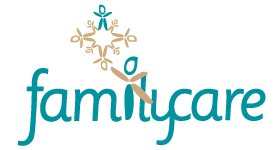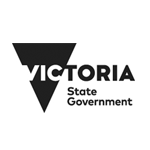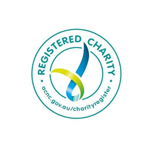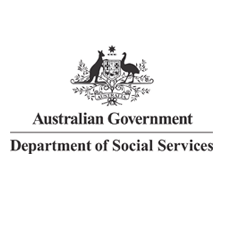The impacts of sexual abuse on Men
This article is being written with the utmost sensitivity and respect for the many individuals that have been subjected to sexual abuse.
What this article is NOT. It is not – and will not capture each man’s journey. It will not entail the impact each man feels in their own way or be able to honor the personal struggle of each individual Man.
The intent of the article is to bring awareness to the struggles many men endure in isolation, to shine a light on the emotional hardship that invariably transpires in the journey of those carrying the burden of such potentially destructive acts.
Having worked with men, both younger and older, who have been the victims of sexual abuse, there have been observations that are worthy of sharing, to ensure we are best caring for our hurting men.
The most significant factor that has been observed is the point of disclosure. The point where a boy or man has summoned the courage to share this deeply private information in a bid to relieve himself from the scourge of the abuse. If the person or people receiving the disclosure, believe the disclosure and act and intervene protectively, the boy or man has the better chance to move forward. In circumstances where the disclosure is dismissed, not believed or covered up ……….well, this is where the most destructive, soul impacting damage appears to occur.
Suicidal thoughts are not uncommon. High-risk behaviors and a lack of self-preservation can also be commonplace. A sense of confusion and deep betrayal can persist as a life-long burden.
Shame can often become an intrusive emotion. Shame can involve the feeling that one is fundamentally flawed, the feeling of embarrassment or humiliation or feeling that YOU have done something wrong. When a man becomes the judge and jury of himself and deems themselves as being a bad person, worthless or having no value, the function of self-defeat runs the risk of taking over and dominating healthy aspects of life.
Let’s explore the concepts of ‘worthlessness’ and ‘not feeling worthy of being cared for’.
Feeling ‘worthless’ is the internal feeling of desperation, hopelessness and/or isolation. It is a feeling that comes from deep within and is a projection of yourself, to yourself.
‘Not feeling worthy of being cared for’ is a little different, and most likely the manifestation of ‘worthlessness’. This is a perception, likely through the ill treatment by others, that nobody really cares for you. There can be a disconnect between what you see and what you feel. To be inhibited from feeling the warmth and love of others is powerful. To understand the emotions of such traumas opens the door for help-seeking behaviors and a potential pathway to the love and warmth we seek as human beings.
When we feel powerful negative emotions or experience negative, intrusive thoughts we have little or no control over, the human machine will look to develop coping mechanisms to mange this uncomfortable experience. Coping mechanisms are behaviors that aim to avoid stress or unpleasant emotions. These behaviors can be positive (adaptive) or negative (maladaptive). Maladaptive coping mechanisms include, but are not limited to substance use, violence, high risk behaviors, excessive gaming, social withdrawal, gambling, excessive spending, poor diet and self-harm. In essence, these become sanctuaries for the hurting individual. And while they may provide sanctuary, it is usually temporary and inhibitive of the individual seeking healthy pathways to more adaptive coping mechanisms.
Why would we be seeking more ‘adaptive’ and healthy coping mechanisms?
If you are a son, a father, a partner, a friend, an employee, a volunteer, someone who has helped another or says hello to another person, you have a place in this world to feel the warmth and love of positive experiences. There may in fact be others that need your love and warmth. Partners and children in particular benefit from having the presence of a man who is able to connect with them emotionally. For some, this does not come naturally, for others, it does. Irrespective if it does or not, it is something that ALL of us can make improvements on. The opportunity to learn about ourselves and the needs of others exists – we just need to navigate the pathways to seeking this help.
Pathways to seeking help can feel dangerous – emotions can feel dangerous. The bravery of allowing oneself to be vulnerable can come at a cost. The usual mechanisms of self-protection have been instilled for one’s perceived safety…………. but at what cost??
The benefits of seeking support can have life-long positive outcomes. Understanding the dynamics of sexual abuse can assist in the process of healing. Feeling the warmth of another who is prepared to sit with your distress and grief can build trust that YOU ARE WORTHY of being cared for. Taking the risk of trusting another person who cares for you can open the world of self-value and self-confidence.
It should be noted that loved ones and friends may be open and supportive but may not have the necessary skills to therapeutically work through the powerful emotions and presentations that are borne from sexual abuse. For this reason, the strong suggestion is to consider support from an appropriate source. Specialized services have been set up in the understanding that there are victims in our society that are suffering. The delicate nature of individuals seeking support for sexual abuse are understood and treated with sensitivity, compassion and respect. Help is out there!
The following organizations can assist if you are seeking support.
Victoria Health Sexual Assault Services
SEXUAL ASSAULT CRISIS LINE
Phone: 1800 806 292
SACL operates between 5pm weeknights through to 9am the next day and throughout weekends and public holidays.
Website: www.sacl.com.au
CASA Victoria
Goulburn Valley CASA provides trauma informed counselling and support for people who have experienced, or been impacted by a recent or historical sexual assault. GVCASA also provides advocacy, secondary consultation, community education and professional training for schools and community groups. 24 hour Crisis Care is provided for people who have experienced a recent sexual assault which includes counselling, support, information and advocacy for medical care and legal options.
24/7 Sexual Assault Crisis Line: 1800 806 292
Website: www.gcasa.org.au
Email: gvcasa@gvhealth.org.au
1800RESPECT
1800RESPECT is the national domestic, family and sexual violence counselling, information and support service. Call 1800 737 732, text 0458 737 732, chat online or video call via our website.
Home | 1800RESPECT
Please note: Support can also be accessed through your G.P
If you are not ready to seek out supports, please self-care. Take time to be with your loved ones, be present for them and allow them to be present for you.
“Self-Care is how you take your power back”
Lalah Delia













Leave a Reply
Want to join the discussion?Feel free to contribute!